Filter by
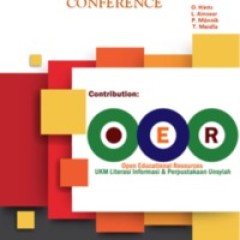
The Seventh Baltic Stratigraphical Conference
Baltic co-operation in the field of regional stratigraphy started already in 1969 when the Baltic Regional Stratigraphical Commission (BRSC) was founded. In 1970–1980s, many meetings, workshops and field excursions were organized. BRSC played an important role in promoting stratigraphical research in the former Soviet Union and contributing to the development of stratigraphical schemes use…
- Edition
- -
- ISBN/ISSN
- 978-9985-815-68-7
- Collation
- -
- Series Title
- -
- Call Number
- 910 HIN s
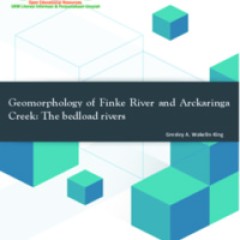
Geomorphology of Finke River and Arckaringa Creek : The bedload rivers
The Lake Eyre Basin River Monitoring project was funded by the Australian Government through the Department of the Environment, and administered by the South Australian Department of Environment, Water, and Natural Resources. Tom Carrangis and Andy Harrison provided project management, and Dale McNeil shaped the study and its multidisciplinary team. Angus Duguid and Peter Jobson participated in…
- Edition
- -
- ISBN/ISSN
- -
- Collation
- -
- Series Title
- -
- Call Number
- 910 WAK g
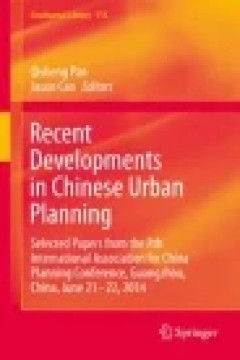
Recent Developments in Chinese Urban Planning: Selected Papers from the 8th I…
This book provides a comprehensive overview of the most recent development of Chinese cities. It discusses a broad range of subjects of urban planning, including environmental planning, transportation planning, historical preservation, economic development, geographic information systems (GIS) and other technological applications. China, the most populous country in the world, has experienced u…
- Edition
- 1
- ISBN/ISSN
- 978-3-319-18470-8
- Collation
- -
- Series Title
- -
- Call Number
- 910.02

Broad Scale Coastal Simulation : New Techniques to Understand and Manage Shor…
Coastal zones exemplify the environmental pressures we face: their beauty attracts settlement, they offer potential for diverse economic activities, and they are sensitive natural habitats for important species, as well as providing a range of ecosystem services. They are also extremely vulnerable to the vicissitudes of climate change, which include rising sea levels and changes in extreme even…
- Edition
- -
- ISBN/ISSN
- 978-94-007-5258-0
- Collation
- -
- Series Title
- -
- Call Number
- 910
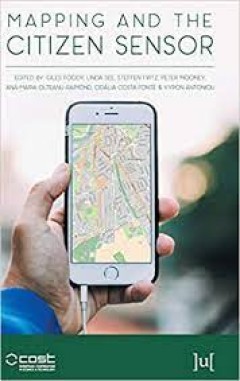
Mapping and the Citizen Sensor
Maps are a fundamental resource in a diverse array of applications ranging from everyday activities, such as route planning through the legal demarcation of space to scientific studies, such as those seeking to understand biodiversity and inform the design of nature reserves for species conservation. For a map to have value, it should provide an accurate and timely representation of the phenome…
- Edition
- -
- ISBN/ISSN
- -
- Collation
- -
- Series Title
- -
- Call Number
- 900 FOO m

Building Resilient Cities in China: The Nexus between Planning and Science
This book discusses a range of planning and management issues related to building urban resiliency. It covers such topics as urban, environmental, and transportation planning, historical preservation, emergency relief and management, geographic information systems (GIS) and other technological applications. The book includes case studies of several cities and districts in China, including Shang…
- Edition
- 1
- ISBN/ISSN
- 978-3-319-14145-9
- Collation
- XIII, 389
- Series Title
- -
- Call Number
- 910
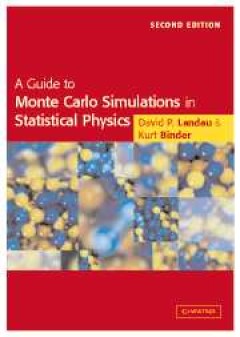
A Guide to Monte Carlo Simulations in Statistical Physics
This new and updated edition deals with all aspects of Monte Carlo simulation of complex physical systems encountered in condensed-matter physics, statistical mechanics, and related fields. After briefly recalling essential background in statistical mechanics and probability theory, it gives a succinct overview of simple sampling methods. The concepts behind the simulation algorithms are explai…
- Edition
- -
- ISBN/ISSN
- 9780511614460
- Collation
- -
- Series Title
- -
- Call Number
- -
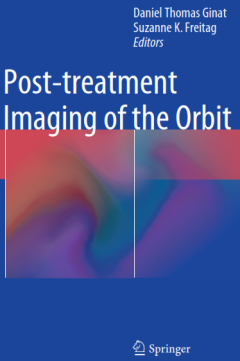
Post-treatment Imaging of the Orbit
This book provides a comprehensive review of the imaging features that are seen following the application of a variety of ophthalmic and orbital procedures and therapies in patients with disorders affecting the cornea, retina, lens and ocular adnexa, as well as glaucoma. A wealth of high-quality radiographic images, including CT, MRI and ultrasound, depict expected post-treatment findings and a…
- Edition
- 1
- ISBN/ISSN
- 978-3-662-44023-0
- Collation
- XIII, 200
- Series Title
- -
- Call Number
- 616.07543 THO p
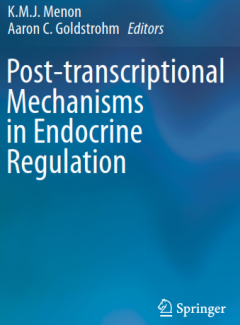
Post-transcriptional Mechanisms in Endocrine Regulation
This book examines how post-transcriptional mechanisms control endocrine function. This includes newly identified regulatory mechanisms involved in hormone biosynthesis, control of hormone receptors and the outputs of hormone mediated signal transduction. Chapters address endocrine hormones including protein peptide/peptide, steroid, and non-steroidal hormones. The impacts of these mechanisms o…
- Edition
- 1
- ISBN/ISSN
- 978-3-319-25124-0
- Collation
- XIV, 341
- Series Title
- -
- Call Number
- 612.4 GOL p

Digital Holography and Wavefront Sensing Principles, Techniques and Applications
This highly practical and self-contained guidebook explains the principles and major applications of digital hologram recording and numerical reconstruction (Digital Holography).
- Edition
- 2
- ISBN/ISSN
- 9783662446928
- Collation
- XI, 226
- Series Title
- -
- Call Number
- 774
 Computer Science, Information & General Works
Computer Science, Information & General Works  Philosophy & Psychology
Philosophy & Psychology  Religion
Religion  Social Sciences
Social Sciences  Language
Language  Pure Science
Pure Science  Applied Sciences
Applied Sciences  Art & Recreation
Art & Recreation  Literature
Literature  History & Geography
History & Geography